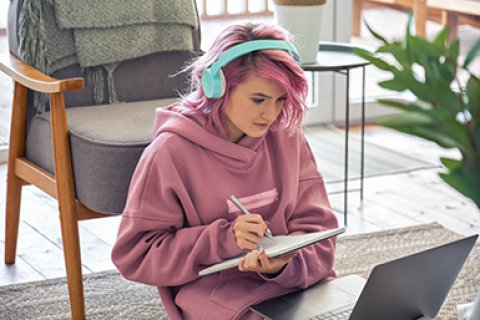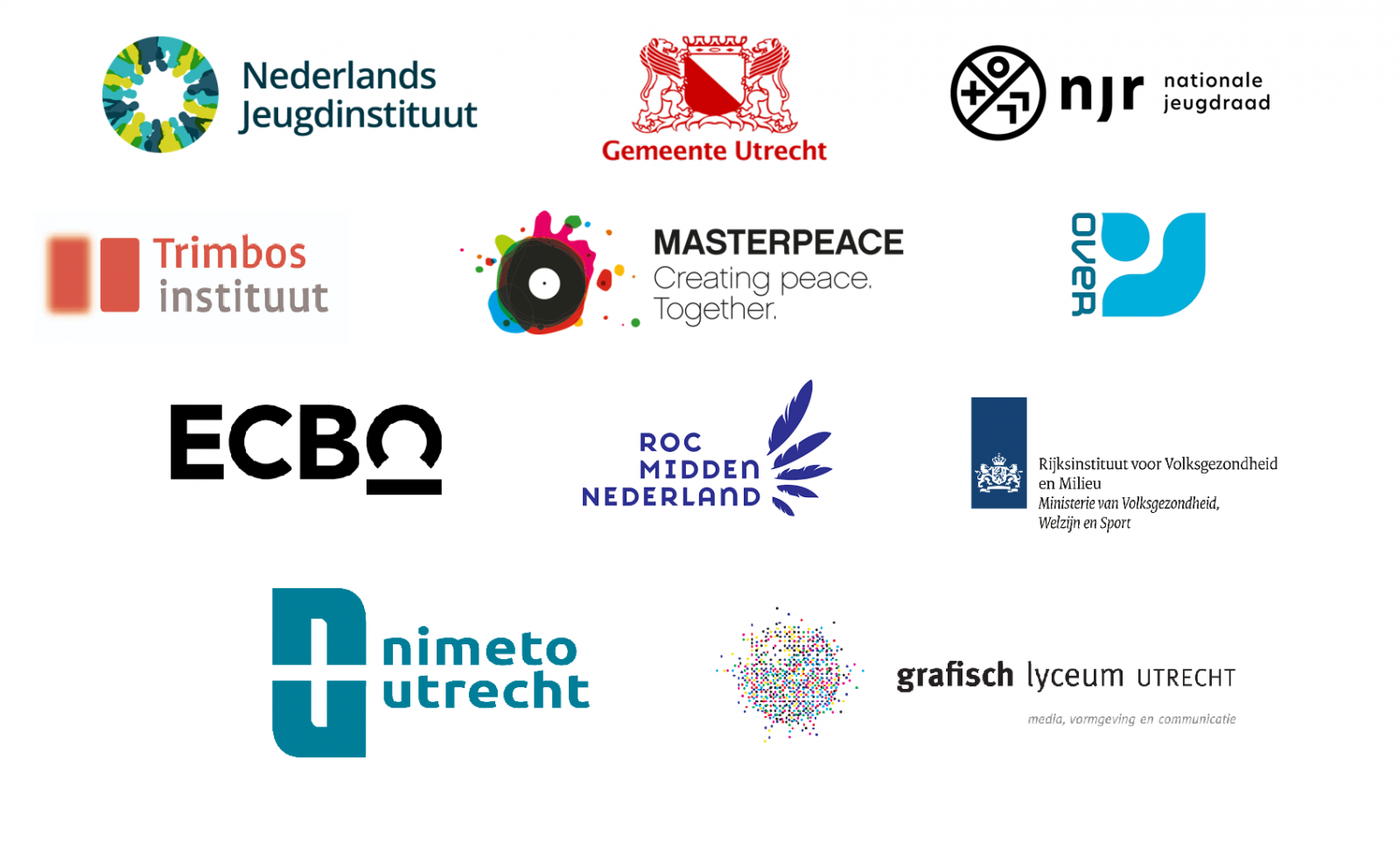YOUth Got Talent
How do young people see their future?
A happy life and a bright future – that is what most young people in the Netherlands want. However, there are clear differences in well-being, mental health and social participation between young people from different social groups.
The YOUth Got Talent hub investigates how experiences in the family, with friends, at school, in the community and in society influence young people’s well-being and their ideas about the future.

Understanding differences between social groups
Prosperity in the Netherlands is high. Compared to other countries, people have a decent income and good housing, the Netherlands is safe and education is accessible to all. In addition, young people in the Netherlands have been among the happiest in Europe for years, and they consider the relationships with their parents, friends, classmates and teachers to be supportive.
In the Netherlands, the assumption is that you can be and become whatever you want and that everyone can lead a happy, healthy and productive life. However, there are also differences. Young people from families with a lower economic status and from a migrant background are significantly more likely to experience problems with their well-being and social participation than their peers.
In the YOUth Got Talent hub, scientists and social partners combine their expertise to study ways of reducing these differences. Researchers from the Faculties of Law, Economics and Governance (REBO), Geosciences and Social and Behavioural Sciences are affiliated with the hub.
‘How young people think about their future is at the heart of our research’
Legislation and regulations
Researchers who specialise in family law look at which legislation and regulations safeguard and promote social participation and the well-being of young people. Researcher Merel Jonker explains, ‘We believe it is important to know what young people themselves think of the rules and whether legislation guarantees equality and inclusiveness. We also study how children’s rights with regard to poverty are translated into Dutch legislation and policy.’

What role does the environment play?
Environmental factors also play an important role in the well-being of young people, as shown, for example, in a review article that was recently published by researchers at the hub. Their social geography and planning expertise was crucial to their research. ‘How familiar or safe do young people feel in the community where they grow up and the school they attend? How decisive is the environment for their social participation, opportunities and well-being? I’m also curious to know whether growing up in a disadvantaged neighbourhood can also have positive effects,’ says geographer Kirsten Visser.
Interaction between individuals and their environment
The social scientists in the hub focus on the interplay between individual and environmental factors. Researcher Gonneke Stevens says, ‘One thing we’ve found is that young people from low-income families feel less in control of their own lives and consider Dutch society less fair. This is then linked to a greater incidence of mental problems. We also found that young people with mental problems are significantly more likely to drop out of senior secondary vocational education.’
‘We discussed and debated the design and content of the study extensively. As a result, it really is a joint effort.’
Together with social partners
The YOUth Got Talent hub works closely with social partners. These include the City of Utrecht, the Dutch National Youth Council and the senior secondary vocational education institutions in Utrecht. It is currently working on a project in partnership with the Academic Work Centre on the Transformation of Youth in the Province of Utrecht, in which a large number of municipalities in the province participate.
Core projects of the YOUth Got Talent hub
The four core projects:
Other research projects:
- Health Behaviour in School-Aged Children (HBSC) study: Dutch study into the well-being and health of young people in the Netherlands between 2001 and 2021; see https://hbsc-nederland.nl/;
- Community, school and municipal contexts and their connection to the well-being of young people in a changing society: analysis of the results of the Dutch HBSC study between 2001 and 2017 (PhD project as a partnership between the department of Human Geography and Spatial Planning and the Interdisciplinary Social Science department);
- Research into the well-being and health of chronically ill and ‘healthy’ young people: comparison of HBSC and PRO-Active (a partnership between YOUth Got Talent and Healthy Play Better Coping);
- Research into factors that hamper and stimulate sports participation and the use of financial support funds among young people from low-income families (partnership between Vital@2040, YOUth Got Talent and Healthy Play Better Coping).
Join us!
If you think you can contribute to our research, contact Gonneke Stevens via G.W.J.M.Stevens@uu.nl or 030 253 3488.
We collaborate with the following partners:


